September 6, 2020 - The first weekend of September traditionally brings 100,000 pilgrims to celebrate Holy Sunday in Ludbreg and its 1411 Eucharistic Miracle authenticated by the Vatican in 1513. This year was different, and very pleasant.
It is a story which began in 1411 in the private chapel of Count Batthyany in Ludbreg, continued in Rome with Pope Leo X in 1513, was then the subject of a Croatian government promise in the then Croatian capital of Varazdin in 1738, a promise which was eventually fulfilled in Ludbreg in 1994 during the Homeland War, and a story which is celebrated on the first weekend of September each year by over 100,000 pilgrims in a church in a park which is otherwise not used all year.
The story of Croatia's only certified miracle is a fascinating one, spanning 8 centuries (check out the One Minute Ludbreg video above, or this TCN article on the background). But while the Holy Sunday in Ludbreg might have attracted 100,000 pilgrims in a normal year, 2020 has been anything but normal. The local authorities sensibly decided against many of the concerts and other entertainment events in this socially distanced era, and they also reduced fees for stallholders by 50% for the occasion.
The question was, how many pilgrims would come?
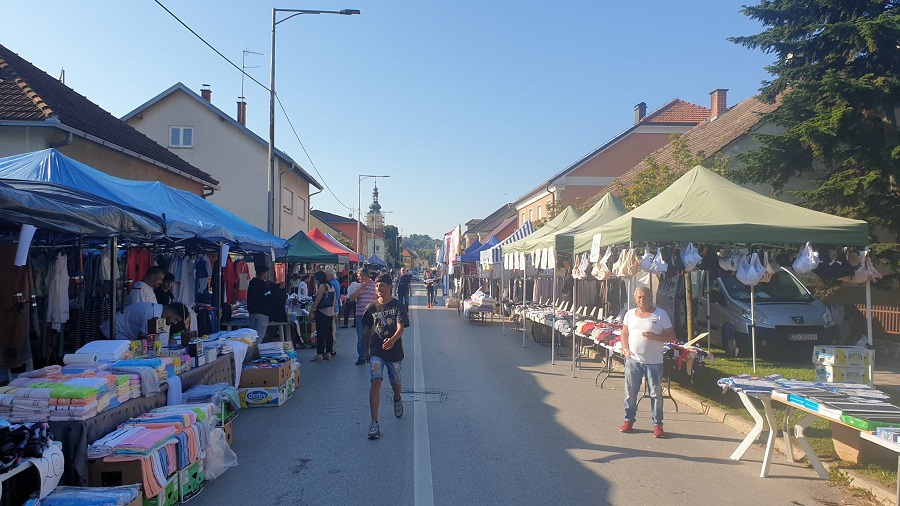
As the town does not deal with anything like this kind of influx 363 days of the year, I decided to leave early, so as to make it in time for the 10.00 mass in the park at the Sanctuary of the Special Blood of Christ. This is the church that was built in 1994 after the government promised to build a church of thanks in the miracle town back in 1738, if God would stop the plague. It is only used this one weekend every year.
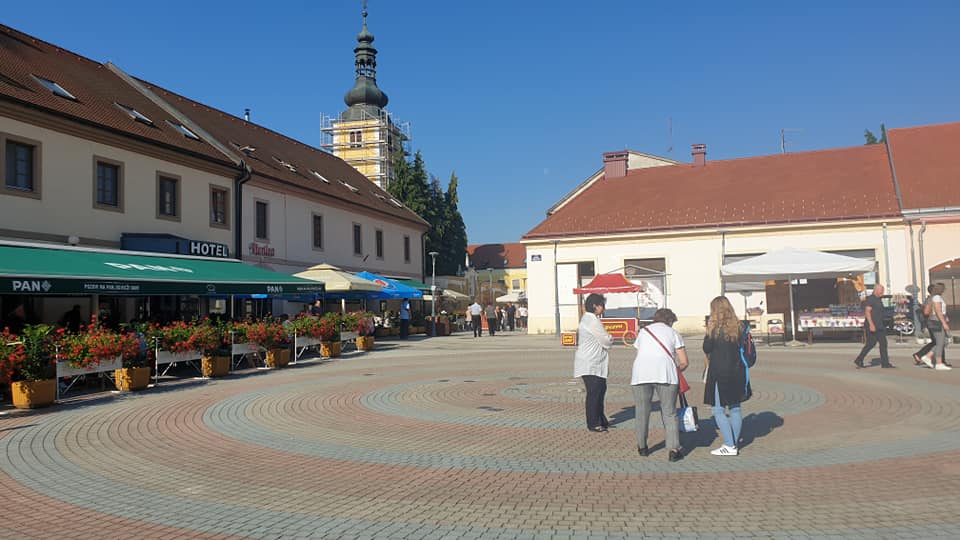
Traffic was much lighter than I had anticipated, and once we found parking away from the centre, it was time to explore. The town was pleasantly full, with MANY street stalls lining all routes to the centre, with the best and most authentic wares saved for the central square, home to Ludbreg's other claim to fame as the centre of the world. Indeed, the church which displays the Eucharistic Miracle of Ludbreg is just 20 metres from the centre of the world - see photo above.
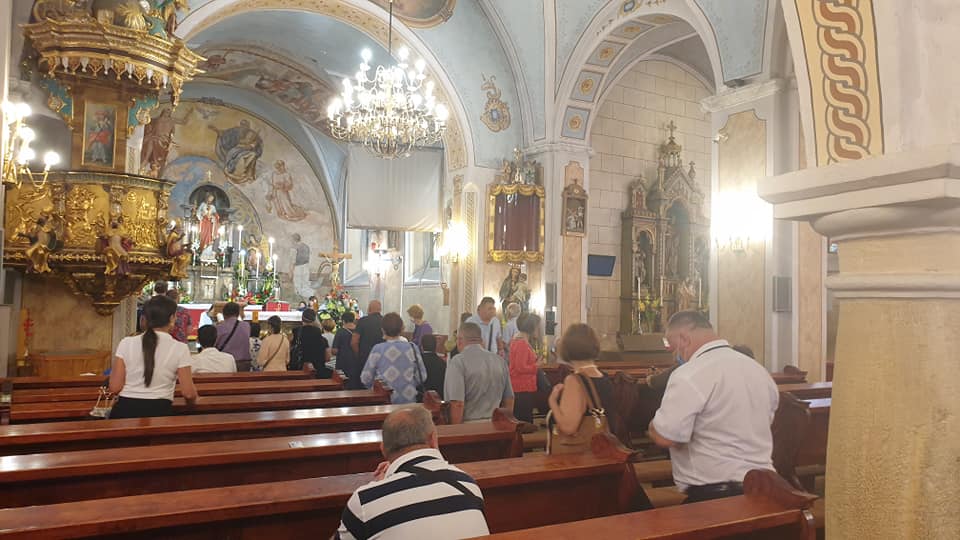
The chalice with the blood is normally on display in the glass case in the centre of the picture above, but it had been moved to the other church for this most special of masses.
So how busy was it? I have never been to mass in a park before, and I have to say that the atmosphere was very pleasant, as well as a truly picturesque setting. The mass was broadcast live on national television, one more reason perhaps for pilgrims to postpone their visit until safer times. A walk through the whole park, above, showed that although there were thousands attending the mass, it was much less than in more normal years. I think the space was appreciated by all on what was quite a hot day.
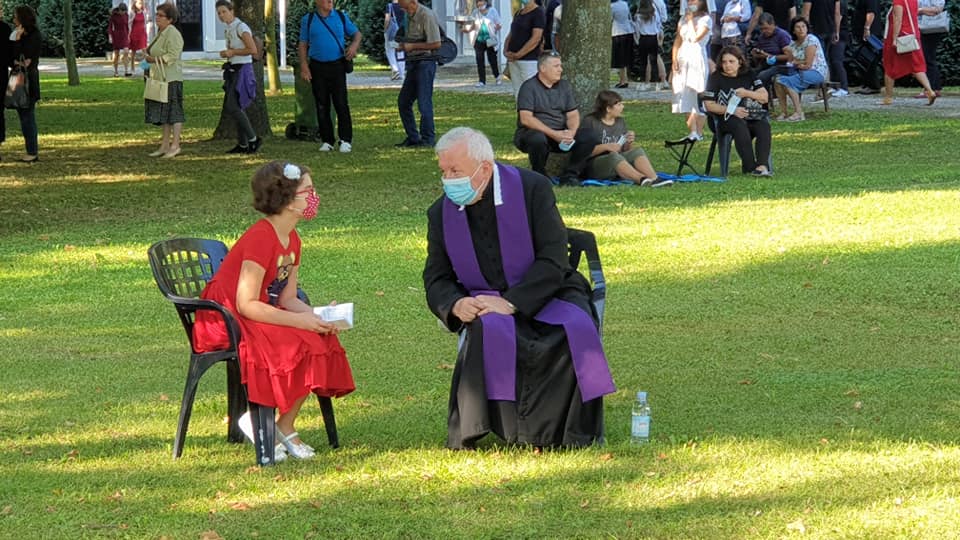
A chance to have one's confession heard in a pleasant outdoor socially distanced environment.
While others quietly walked around the side of the park, following the Stations of the Cross.
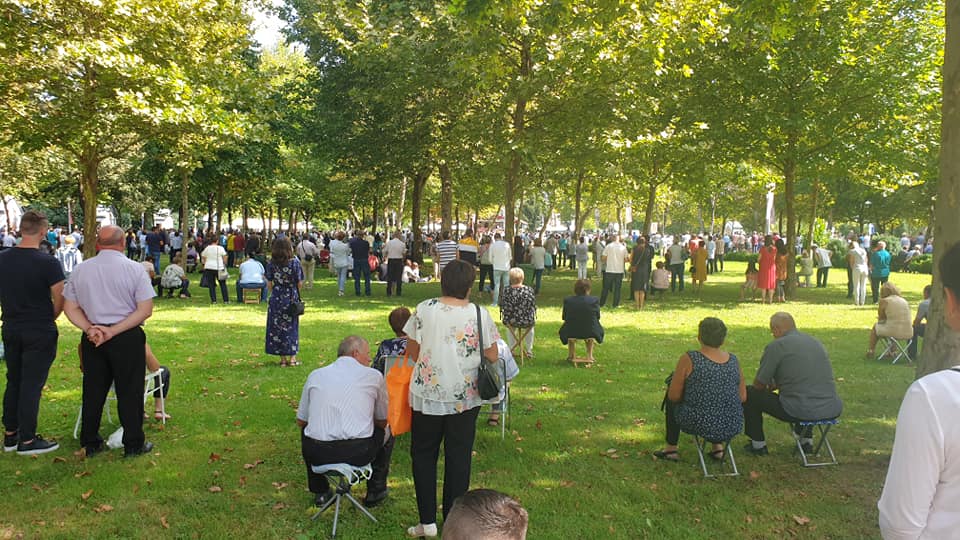
Many had brought their own seating arrangements, and there was plenty of space for all.
The chalice with the miracle blood was on display at the back of the church.
And the mass itself was officiated by an impressive number of priests and altar boys, as well as attended by senior politicians.
Away from the religious aspects of the weekend, visitors had a chance to see how much Ludbreg is changing, with various investments and initiatives already beginning to bear fruit.
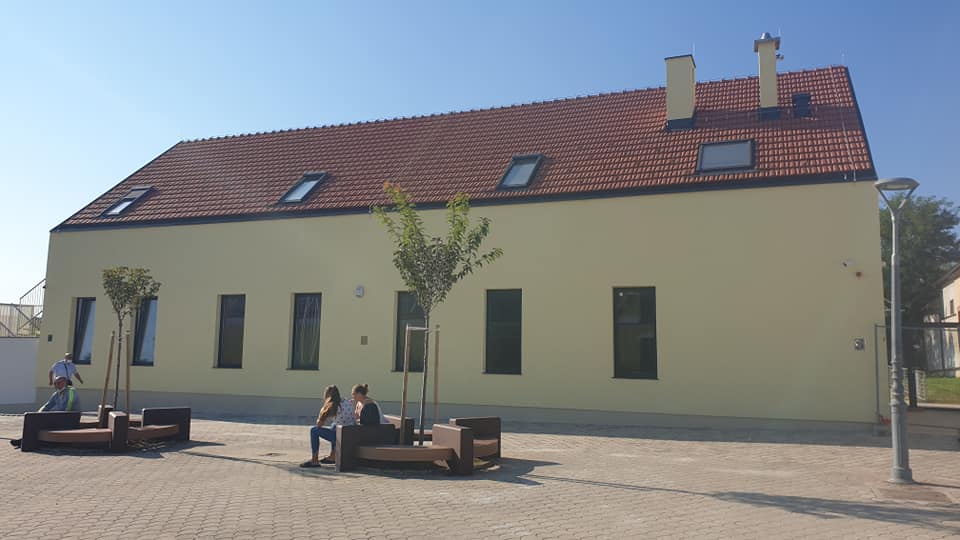
The new archaeological park, Iovia Ludbreg, above, which is also just metres from the centre of the world, is also approaching completion and is due to open in February. Built largely with EU funds, it will be a major attraction to the town, with school groups already lining up to visit this new attraction in Ludbreg.
The focal point of the new archeological park will be to show as clearly as possible the thousands of years of continuous history which exist in Ludbreg. These include the find of a prehistoric rhinoceros called Erica, whose profile has recently been raised with the addition of a straw likeness along the river Bednja.
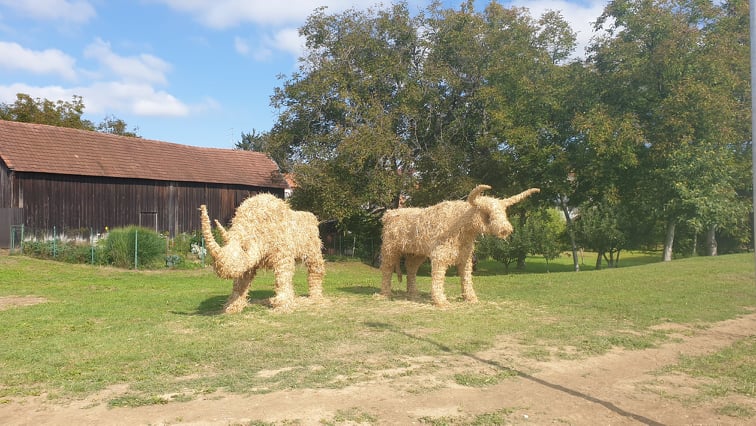
A walking trail along Bednja is also being created, 1300 meters long with informational and educational content, bringing other locations and sites closer. A new square, the so-called "Crafter's Square" will also be built, and it will be a location where the visitors will be able to learn about the crafts present during the Roman period.
A little further down the new path under construction, one comes to a bridge over to Otok Mladosti (Island of Youth), a small peninsula which serves as a haven to nature around the lake above, as well as a party and concert venue on the other side. This weekend, it was the turn of an amusement park to offer entertainment for the little ones.
It was my first time to visit Otok Mladosti, a wonderful addition to this truly unusual town.
It is more than four years since my first visit to Ludbreg, after which I wrote an article called Ludbreg, the Most Fascinating, Unusual Little Town in Croatia?
It truly is and the Holy Sunday celebration of Croatia's only certified miracle is just one small part of its story.


